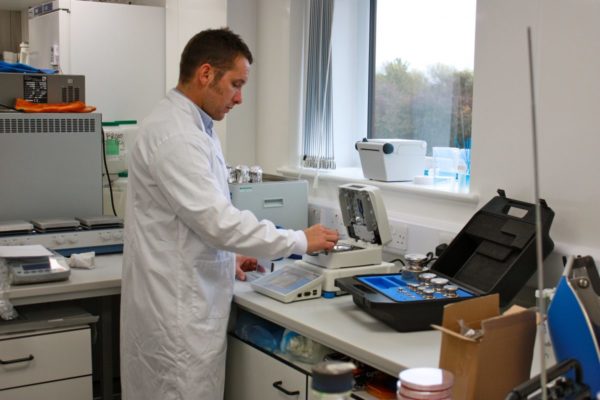The importance of periodic calibration in an industrial setting
Calibration is a crucial aspect of keeping industrial equipment accurate and running smoothly. Without proper calibration, your equipment may produce faulty readings that can lead to costly mistakes and downtime. This is why routine scale calibration is so important for businesses.
Importance of Periodic Scale Calibration
There are several reasons why calibration is crucial for industrial customers:
- Legal requirements: Many industries in England have legal requirements for the calibration of certain types of equipment. For instance, the pharmaceutical industry has strict regulations on the accuracy of weighing scales used in the manufacturing process. By calibrating these scales regularly, companies can ensure that they meet these regulations.
- Quality control: Calibration helps to ensure that your equipment is producing accurate and consistent results. This is vital for maintaining the quality of your products and meeting customer expectations.
- Safety: Incorrect readings from equipment can be dangerous, particularly in industries such as construction and manufacturing. For example, if a pressure gauge is not properly calibrated, it could lead to a dangerous overpressure situation.
- Cost savings: Properly calibrated equipment can help to reduce downtime and prevent mistakes that can be costly. By calibrating your equipment regularly, you can catch any potential issues before they become major problems.
There are several different types of calibration methods available from MWS, these include standard ISO 9001 calibration, ISO 17025 standard calibration, and in-house calibration where clients return units to us to be certificated.
Each method has its own advantages and disadvantages; the right method will depend on the specific needs of your business and the amount of assets you require to be tested.

Scale Calibration Methods
MWS only offers calibration services to national standards covered by SGS and the United Kingdom Accreditation Service (UKAS).
Standard ISO 9001 calibration involves an MWS engineer visiting your site to carry out testing, calibration and certification.
ISO 17025, commonly known as UKAS, provides clients with an uncertainty measurement of their weighing equipment. This type of service must be a site calibration and covers 99% of all balances and scales.
As part of the visit a full service and health check is typically carried out before the unit is tested using calibration weights.
In-house calibration involves calibrating the equipment in our facility. This service is normally carried out on vehicle weigh pads using specialised test equipment by our trained service engineers. This method is more cost-effective than sending a member of our team to site as a large force test rig is required to complete the calibrations.
Choosing the Right Calibration Method
When selecting a calibration method, it is essential to consider the type of equipment, the level of accuracy required, and the cost and time constraints of your business.
In addition to choosing the appropriate calibration method, there are several other factors to consider when calibrating your industrial equipment:
- Frequency: The frequency of calibration will depend on the specific equipment and the level of accuracy required. We find good practice to be two visits a year for our clients.
- Calibration intervals: It is crucial to establish a routine for calibrating your equipment to ensure that it is being done regularly and consistently. This can help to prevent costly mistakes and downtime. A calibration visit carried out every year with an interim service visit six months after the calibration visit is preferable. Some clients choose to have a calibration visit more frequently.
- Documentation: Proper documentation is crucial for ensuring that your equipment is properly calibrated and compliant with industry regulations. This includes keeping records of calibration dates, results, and any necessary repairs or adjustments, we keep all of these records on our client portal.
- Training: It is essential to have trained personnel who are knowledgeable about the calibration process and the specific equipment being calibrated. This can help to ensure that the calibration is being done correctly and efficiently. Rest assured our engineers are trained and experienced.
In summary, calibration is a critical aspect of maintaining the accuracy and reliability of industrial equipment.
By choosing the appropriate calibration method and following best practices, you can ensure that your equipment will produce accurate and consistent results, maintain compliance with industry regulations, and reduce costly mistakes and downtime.
Proper calibration is a key element of a successful and efficient industrial operation, that is why it is important to choose an accredited calibration company to carry out your works. Contact us today to get a competitive quote for service and calibration packages.




















